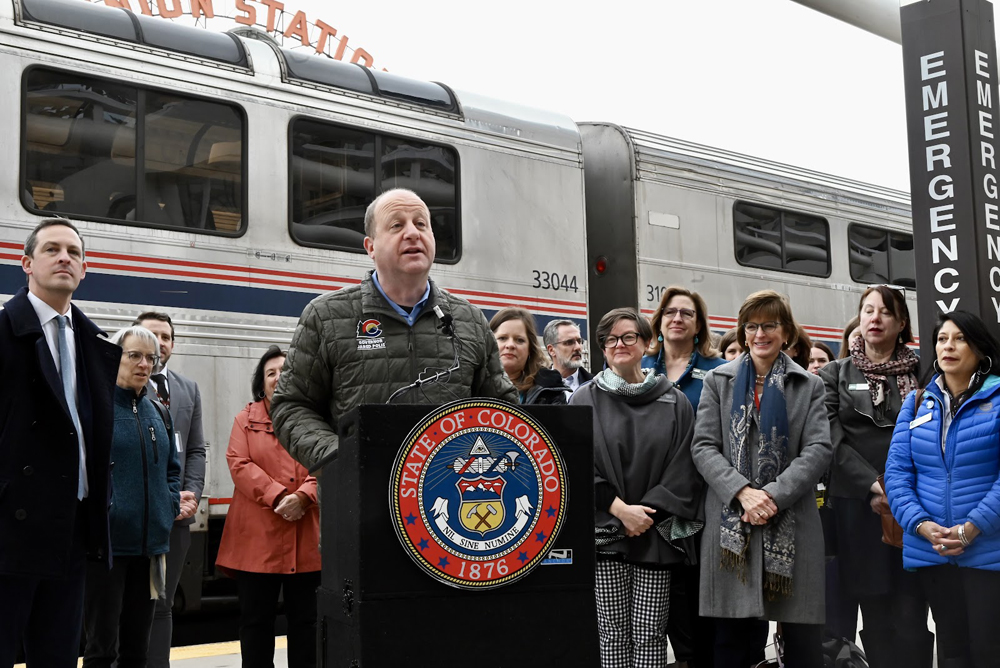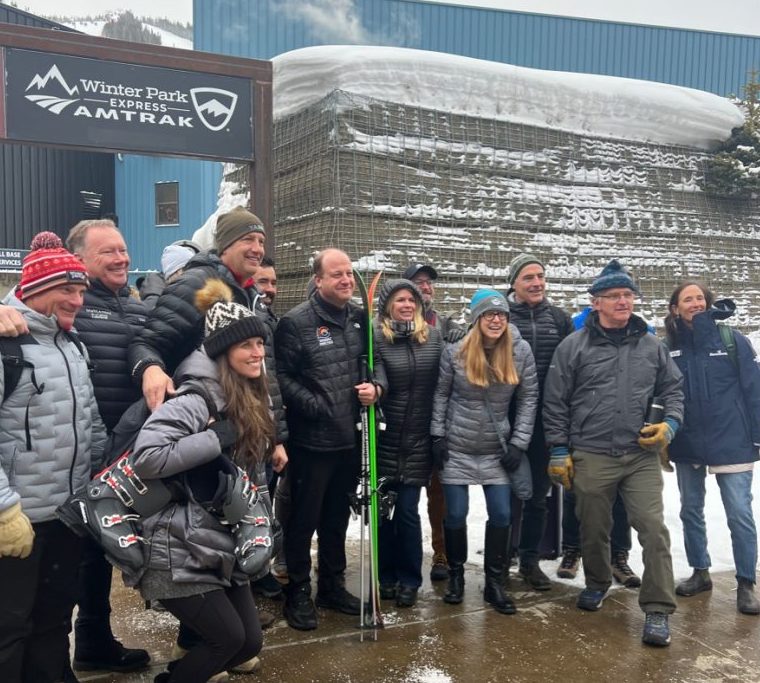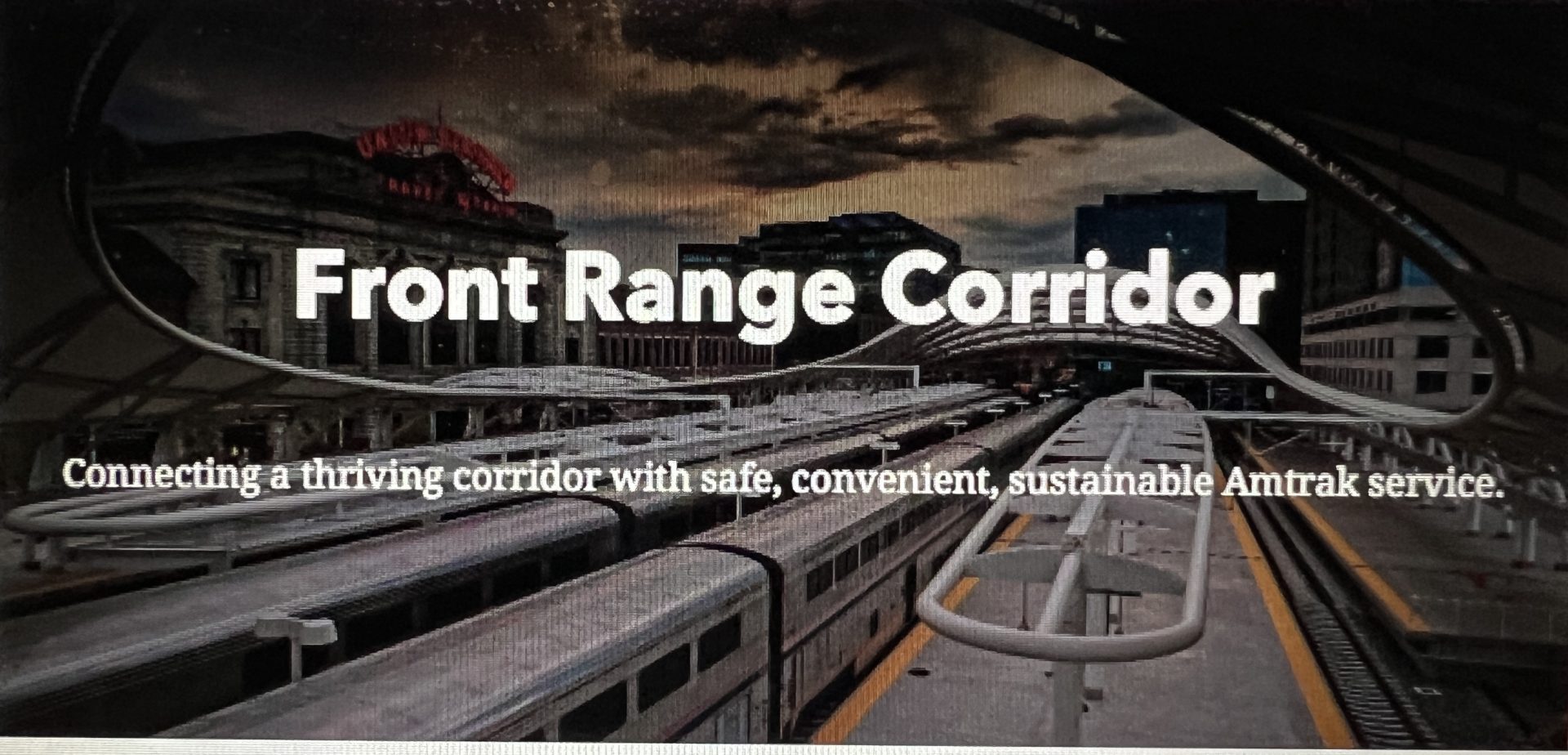
There is no question that traffic jams, congestion, and time wasted sitting in a vehicle is something that no one wants to do while heading up to the mountain. It is no secret that there are areas around the country that are notorious for having grid-lock traffic for miles which leaves passengers sitting on two-lane roads for hours. Colorado is a state whose roads are jammed up on a powder day with people headed to the mountains. Ski resorts, the Department of Transportation, and state and local officials around the country have been developing plans and trying to mitigate this problem for many years now. Colorado may have one key to its traffic congestion which could be implemented fairly quickly.
The project plans on using trains that use current-existing rail lines and the construction of new stations in areas like Colorado Springs, Boulder, Loveland, and other locations. The existing rail line from Denver to Winter Park would be extended to Hayden, Craig, and Steamboat. The hope is that would significantly reduce traffic congestion on the I-70 corridor coming out of Denver.
- Related Article: Winter Park Resort, CO, Seeking Public Comment on Terrain Expansion, New Gondola & Lifts, and Removal of Historic Lift
That project to create a passenger rail line between Denver and northwest Colorado has an initial source of funding after Gov. Jared Polis signed a bill generating the revenue to help pay for the project. Senate Bill 184 allows the state to impose a $3 per day fee on all rental cars in Colorado to help pay for transportation projects, including the Mountain Line. The fee, which will begin in 2025, is estimated to bring in $50 million per year. “High-quality service will allow Coloradans from every corner of our state to travel with ease to enjoy everything our communities have to offer. Today we are closer to this reality than ever,” Polis said after he signed the bill at Denver Union Station.
SB24-184 imposes a “congestion impact fee” of up to $3 per day on rental cars, with money raised as a result going into a fund to be used to meet matching-fund requirements for federal funding for rail. This includes the Front Range Passenger Rail and Mountain Corridor projects and other forms of public transportation. The bill passed the state’s Senate by a 23-12 vote in April and the House by a 41-16 margin earlier this month.
Stretching from Puebl0 in the south of the state to Cheyenne in Wyoming, the Front Range Urban Corridor stretches over 200 miles. Much of the route has not seen regular passenger service since before 1970 and is used for coal freight. According to the U.S. Census Bureau, the population in the Front Range Urban Corridor grew 15% from 2010 to 2018, to nearly 5 million people. Roughly 85% of Colorado’s 5.8 million residents live within the Front Range Corridor.
The Front Range Corridor plan by Amtrak greatly assists this project to move forward quickly. Amtrak has recently announced its FY24-29 Plan to spend $50.4 billion throughout the five-year plan period for sustained growth. This is the largest investment in passenger rail since the creation of Amtrak in 1971.
The Front Range is currently only served by one Amtrak station, located in downtown Denver, which provides east-west transportation. New Proposed Stations are:
- Pueblo
- Colorado Springs
- US Air Force Academy
- Castle Rock
- Littleton/South Metro
- Denver
- Boulder
- Longmont
- Loveland
- Fort Collins
- Cheyenne, WY
The $66 billion Bipartisan Infrastructure Law focuses on repairing outdated infrastructure throughout the United States. The law also contains funding to rebuild and reinvest in railways, public transit infrastructure, and the safety of our transportation system. It further reauthorizes federal surface transportation programs for five years and invests billions in transformational projects. Polis plans to use the funding generated by the $3 fee to secure a chunk of the $66 billion in federal funding from the Infrastructure Investment and Jobs Act set aside by Congress in 2021 for rail development in the country. Federal grants can pay for up to 80% of a project with a 20% matching requirement.
“Front Range Passenger Rail is a critical way to make Colorado more sustainable, affordable, and liveable,” Polis said in a statement after signing the bill at Denver Union Station. “High-quality service will allow Coloradans from every corner of our state to travel with ease to enjoy everything our communities have to offer. Today we are closer to this reality than ever.”
The Front Range Passenger Rail could also assist ski resorts in the area and their employees with the housing crisis that the ski industry is currently facing. Finding affordable housing for employees who work at ski resorts is not easy and is costly not only for the employee but also for the resort itself. In trying to recruit and retain employees, resorts have been building on-mountain housing for employees to live in to be closer to their jobs. No resort employee wants to drive an hour home, on a two-way street, on a winding mountain road, in the middle of a snowstorm, after a 10-hour shift.
This project has the right pieces in place to come together fairly quickly and become a reality in the next few years. That is something most Americans are not used to hearing when discussing government projects. This gathers optimism in the communities, businesses, and people who live in those areas. Only time will tell if this project will reduce traffic congestion and also assist people with finding affordable housing. Hopefully, it does.

Elliott Wenzler/Vail Daily
